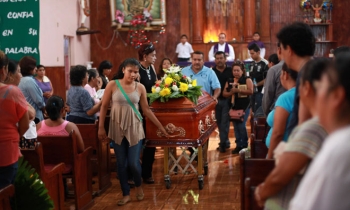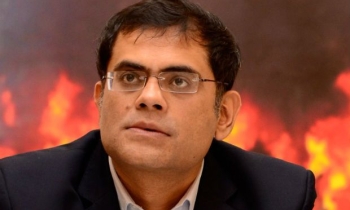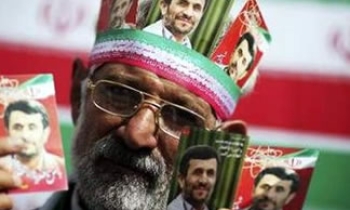Reporters Without Borders today reiterated its call for Radio Caracas Televisión (RCTV) to be allowed to resume free terrestrial broadcasting after learning that the privately-owned broadcaster will resume transmission by cable and satellite to paying subscribers on 16 July. The government refused to renew RCTV’s terrestrial broadcast licence a month and a half ago.
“Since losing its terrestrial licence on 27 May, RCTV has managed to have one of its news programme carried by another terrestrial broadcaster with a more limited audience, namely Globovisión,” the press freedom organisation said. “Its reappearance on cable and satellite would not enable it to reach the same number of viewers it used to have when it was a terrestrial broadcaster. For this reason, and in view of the serious irregularities surrounding the government’s refusal to renew its licence, we are calling for RCTV to be allowed back on the airwaves.”
RCTV is to resume broadcasting at 6 a.m. on 16 July on channel 103 of Direct TV, a satellite service available to subscribers, and on Inter and Net Uno, two Venezuelan pay TV services supplied by cable.
The country’s most popular TV station, RCTV was already broadcasting by cable and satellite before the withdrawal of its concession on 27 May. But it had to suspend all forms of broadcasting as the new public TV station that replaced it on terrestrial channel 2, Televisora Venezolana Social (Tves), also took over its cable and satellite access.
Furthermore, the government also bought up CANTV, Venezuela’s main phone and cable service provider, shortly before the withdrawal of RCTV’s concession.
“Public interest in seeing or re-seeing our programmes has increased considerably since 27 May,” an RCTV journalist told Reporters Without Borders. “Abroad, stations such as Mexico’s biggest broadcaster, Televisa, have even decided to transmit some of our news programmes as well as the game and entertainment programmes we were already supplying them. Our news and current affairs programmes can obviously be viewed on our website and are often posted on other sites such as YouTube or Venezuelapress.com by Internet users.”
Under an agreement reached last month, Globovisión is retransmitting one of RCTV’s news programmes every evening. The only remaining terrestrial broadcaster not to adopt a pro-government editorial policy, Globovisión nonetheless broadcasts only in the Caracas region and its requests to cover a bigger area of the country have been turned down.
For its switch to cable and satellite, RCTV has re-labelled itself RCTV Internacional with a view to extending its coverage to all of Latin America and parts of the United States.
In the meantime, the broadcaster’s legal and financial wrangling with the government continues. On 25 May, two days before the expiry of its broadcast licence, the supreme court ordered that all of RCTV’s broadcast equipment should be “put at the disposal” of the new public station Tves. However, the 2000 telecommunications law states that, while the broadcast frequencies belong to the state, the equipment belongs to the broadcasters. The head of RCTV estimates that the order would cost the group “140 million dollars.”
Reporters Without Borders today reiterated its call for Radio Caracas Televisión (RCTV) to be allowed to resume free terrestrial broadcasting after learning that the privately-owned broadcaster will resume transmission by cable and satellite to paying subscribers on 16 July. The government refused to renew RCTV’s terrestrial broadcast licence a month and a half ago.
“Since losing its terrestrial licence on 27 May, RCTV has managed to have one of its news programme carried by another terrestrial broadcaster with a more limited audience, namely Globovisión,” the press freedom organisation said. “Its reappearance on cable and satellite would not enable it to reach the same number of viewers it used to have when it was a terrestrial broadcaster. For this reason, and in view of the serious irregularities surrounding the government’s refusal to renew its licence, we are calling for RCTV to be allowed back on the airwaves.”
RCTV is to resume broadcasting at 6 a.m. on 16 July on channel 103 of Direct TV, a satellite service available to subscribers, and on Inter and Net Uno, two Venezuelan pay TV services supplied by cable.
The country’s most popular TV station, RCTV was already broadcasting by cable and satellite before the withdrawal of its concession on 27 May. But it had to suspend all forms of broadcasting as the new public TV station that replaced it on terrestrial channel 2, Televisora Venezolana Social (Tves), also took over its cable and satellite access.
Furthermore, the government also bought up CANTV, Venezuela’s main phone and cable service provider, shortly before the withdrawal of RCTV’s concession.
“Public interest in seeing or re-seeing our programmes has increased considerably since 27 May,” an RCTV journalist told Reporters Without Borders. “Abroad, stations such as Mexico’s biggest broadcaster, Televisa, have even decided to transmit some of our news programmes as well as the game and entertainment programmes we were already supplying them. Our news and current affairs programmes can obviously be viewed on our website and are often posted on other sites such as YouTube or Venezuelapress.com by Internet users.”
Under an agreement reached last month, Globovisión is retransmitting one of RCTV’s news programmes every evening. The only remaining terrestrial broadcaster not to adopt a pro-government editorial policy, Globovisión nonetheless broadcasts only in the Caracas region and its requests to cover a bigger area of the country have been turned down.
For its switch to cable and satellite, RCTV has re-labelled itself RCTV Internacional with a view to extending its coverage to all of Latin America and parts of the United States.
In the meantime, the broadcaster’s legal and financial wrangling with the government continues. On 25 May, two days before the expiry of its broadcast licence, the supreme court ordered that all of RCTV’s broadcast equipment should be “put at the disposal” of the new public station Tves. However, the 2000 telecommunications law states that, while the broadcast frequencies belong to the state, the equipment belongs to the broadcasters. The head of RCTV, Marcel Granier, estimates that the order would cost the group “140 million dollars.”









